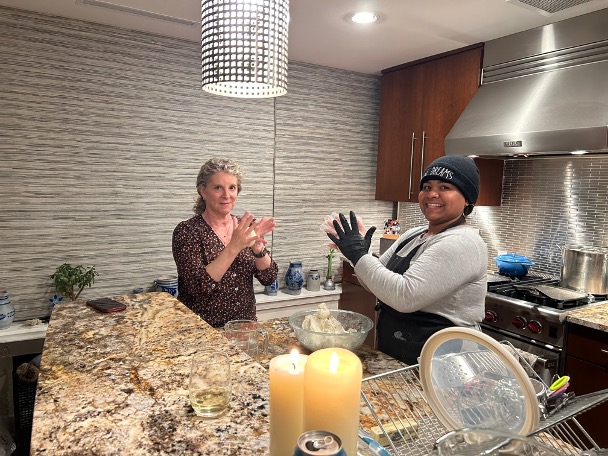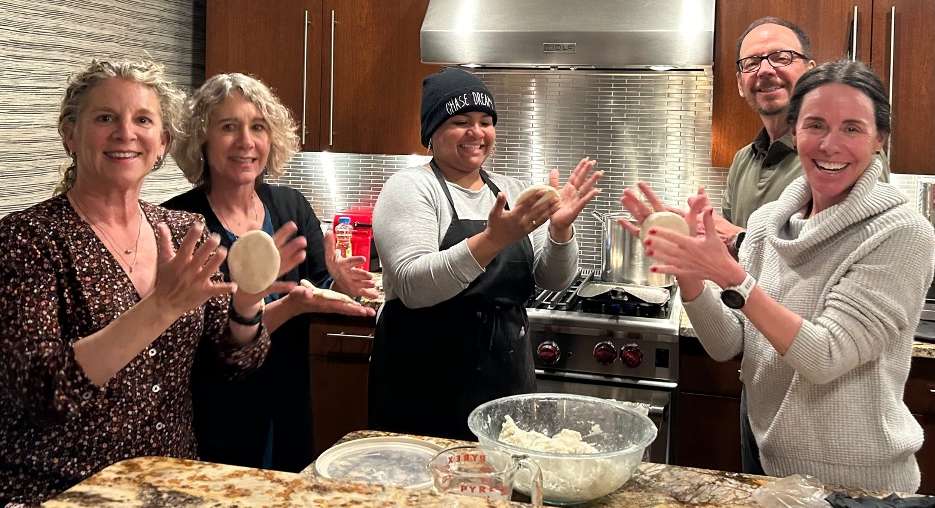Amid the ongoing migrant crisis, a Denver-based community initiative led by Andrea Ryall and the Facebook group Highlands Moms and Neighbors is making significant strides in connecting Venezuelan and South American migrants with community support and employment opportunities. This initiative has helped address the challenges migrants face in obtaining work due to the complex U.S. immigration and asylum system.

“The whole process for getting a work permit is just such a mess. The city is not running any asylum clinics, so there is no easy pathway to even applying for asylum, which you need to have to apply for a work permit,” said Ryall, highlighting the challenges migrants face in gaining employment authorization.
To add context, according to the U.S. Citizenship and Immigration Services (USCIS), individuals can apply for an Employment Authorization Document (EAD) after their asylum application has been pending for 150 days — or fewer for migrants who have other documents. But for most migrants, the EAD cannot be granted until at least 180 days have passed since the filing of the asylum application. This period, known as the Asylum EAD Clock, underscores the meticulous and often lengthy process asylum seekers endure, which can be exacerbated by any delays caused by applicants.
Ryall’s efforts, particularly the creation of a community spreadsheet that lists the names of migrants and the types of work they can do, serve to expedite the process of securing employment for migrants. This spreadsheet has become a crucial tool in cataloging available work opportunities, from domestic help to skilled labor, directly linking community members with migrants ready to contribute their skills.
“We’ve created this resource to centralize and simplify the process of connecting our community members who want to help with migrants seeking work,” Ryall stated. “It’s more than a list; it’s a living document that reflects the ongoing commitment of Denver residents to support our new neighbors.”
Building on this commitment, Katie Reinisch’s story is an example of the initiative’s impact. Reinisch invited Yessica Quintero, a Venezuelan migrant and mother, to lead a cooking class during a dinner party, bringing the flavors of Venezuela to Denver homes.

“Yessica didn’t just prepare a meal; she shared her story, her culture, and her journey to Denver,” said Reinisch, who — for disclosure — serves on the board of the nonprofit governing the Colorado Times Recorder.
Through her culinary talents, Quintero provided guests with not just a taste of her native cuisine but a window into the arduous path she navigated to seek a better life.
“During the whole journey, the hardest part was when we were already in Mexico because my daughter was hungry, and it hurt me a lot that everything I have done, I have done for her, and that my daughter was hungry hurt me too much,” Quintero recounted.
Her words testify to the difficulties of their trek. “We always prayed to God, and there were always angels on the way who gave us [food] even if it was bread, which for us is and was wonderful,” she reflected.
When asked why she made the almost 3,000-mile journey with her daughter to seek asylum in the U.S., Quintero’s answer was simple. “I did it for my daughter, to seek a better life and education for her,” she said.
Despite the bright promise of new beginnings in America, Quintero carries the weight of separation from her family, especially her mother, who remains in Venezuela. “I miss my mother dearly,” she admitted. Yet, the prospect of providing her daughter with opportunities she never had overshadows the heartache of separation.
Enhancing her connection with the Denver community, Quintero has also launched a website, offering online meal ordering or in-home culinary services at Daniela’s Meals, named after her daughter. The website showcases the traditional flavors of her Venezuelan heritage.
Quintero’s experience reflects stories of other migrants who have found work and a community willing to embrace them. “Every person I’ve hired has shown incredible work ethic and gratitude,” Reinisch said, validating the experiences of Denver residents and their new neighbors.
With hundreds of community members now involved throughout the Denver Metro area, Ryall’s initiative is a testament to the power of community activism.
“It’s in a spreadsheet that anyone can edit,” Ryall remarked, emphasizing the collaborative nature and adaptability of the project in meeting ongoing needs.
As Denver continues to open its arms to migrants, initiatives like Ryall’s offer a counter-narrative to the divisive discourse on migration.




